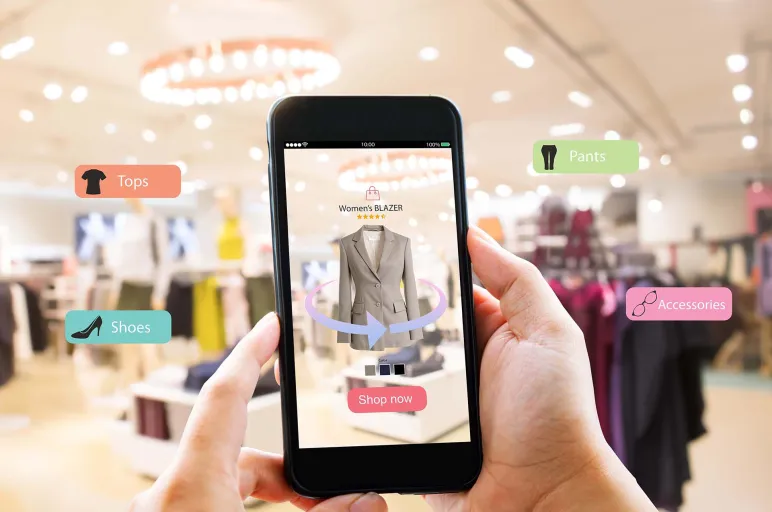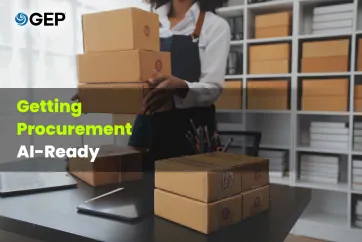
7 Ways Autonomous AI Agents are Revolutionizing Retail Procurement
- Autonomous AI agents are beginning to make an impact on retail procurement operations.
- With AI, retailers can automate routine tasks, such as inventory management, leaving procurement teams free for more strategic and value-adding tasks.
- They can also leverage AI and machine learning algorithms to accurately predict future demand.
April 28, 2025 | Procurement Strategy 4 minutes read
Retail procurement is broken. But there is a fix.
The numbers don’t lie: 15% reduction in logistics costs, 35% lower inventory levels and a 65% improvement in service levels.
All these results, cited in a 2024 Georgetown University study, have been achieved in retail procurement, thanks to the adoption of autonomous AI agents in procurement strategy.
If you’re not onboard the AI train yet, you’re leaving massive savings on the table. The reality is that outdated procurement processes are holding back retailers from reaching their full potential. AI is the key to fixing that—and the clock is ticking.
Here are seven ways these autonomous systems are transforming the retail procurement landscape.
1. Boosting Operational Efficiency with Automation
The most significant impact of autonomous AI agents is their ability to automate high-frequency, repetitive tasks. Procurement teams spend a considerable amount of time on routine work, like processing purchase orders, tracking deliveries, and managing invoices. By offloading these tasks to AI, companies can free up their teams to focus on more strategic, high-value activities. Walmart is an example of this, using AI to automate inventory management , which minimizes human error and optimizes product availability across its global supply chain.
2. Improving Supplier Collaboration with Data Insights
AI agents are far more than just transactional systems; they offer deep insights into supplier performance. These agents continuously analyze supplier data, such as delivery times, quality control, and pricing trends. Real-time insights allow retailers to identify underperforming suppliers or anticipate disruptions before they occur. Retailers like Amazon use AI to build stronger relationships with suppliers, securing better terms and faster deliveries by leveraging performance data during negotiations.
3. Enhancing Demand Forecasting Accuracy
Traditional methods of forecasting demand often fall short, especially in the face of shifting consumer preferences and market fluctuations. AI agents use advanced machine learning algorithms to analyze vast amounts of data from multiple sources—such as historical sales, weather patterns, and even social media sentiment—to predict future demand with impressive accuracy. This not only helps retailers avoid stockouts and overstock situations but also ensures that the right products are available at the right time, reducing waste and maximizing sales.
4. Streamlining Risk Management
Retail procurement often involves managing multiple risks—from supply chain disruptions to supplier compliance issues. Autonomous AI agents are equipped to monitor these risks in real-time. They can automatically detect and flag any discrepancies in contracts or supplier performance, such as delays in delivery or failure to meet quality standards. This proactive monitoring allows retailers to mitigate risks before they escalate into costly problems, ensuring smoother operations and safeguarding the business from reputational damage.
5. Driving Smarter Negotiations with AI-Powered Analytics
AI agents are not just passive tools but active participants in procurement negotiations. By analyzing past supplier performance, market conditions, and real-time pricing data, AI can provide procurement teams with data-driven insights to negotiate better terms with suppliers. This ability to process vast amounts of data and provide actionable insights gives businesses an edge when negotiating pricing, contract terms, or delivery schedules, allowing them to secure better deals and improve profitability.
6. Optimizing Procurement Strategy with Real-Time Analytics
One of the most significant advantages of AI is its ability to continuously analyze data and adjust procurement strategies in real time. AI agents are constantly learning and adapting based on new data, enabling them to optimize procurement strategies dynamically. Retailers can use AI to adjust their sourcing strategies in response to fluctuating commodity prices, shifting consumer demands, or supply chain disruptions. This adaptability allows companies to stay ahead of the competition by aligning procurement strategies with current market conditions.
7. Empowering a Data-Driven Culture
Implementing autonomous AI agents requires a fundamental shift toward data-driven decision-making. AI empowers procurement teams to make more informed, strategic choices based on insights generated from vast amounts of data. By using AI to analyze supplier data, market trends, and operational performance, companies can improve decision-making across the board. This shift toward data-driven strategies helps businesses build a competitive edge in the market and creates a foundation for long-term success in procurement.
The AI Advantage Is Now; Act Before It’s Too Late
It may sound cliché but is indeed a game-changer. With data-backed results showing massive cost savings and efficiency gains, the question isn’t if you should adopt AI in procurement, but how soon.
The clock is ticking, and those who hesitate will miss out on the opportunity to transform their procurement strategies for the better. Don’t wait for the competition to leave you behind — act now.
To learn more about how AI agents are transforming retail procurement, download the new GEP bulletin.



